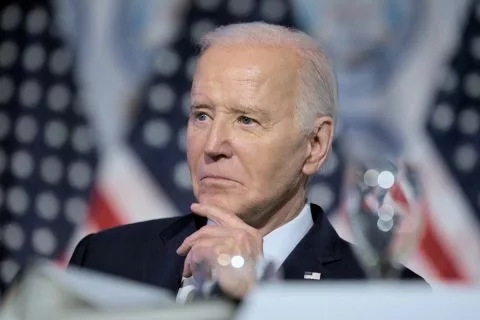In a statement, the White House said the plan would help roughly 500,000 undocumented spouses and an estimated 50,000 noncitizen children who are the stepchildren of citizen spouses.
The plan would not automatically grant residency or citizenship to those who qualify. Instead, they would be granted “parole in place” status and provided three years to apply for permanent residency — also known as a green card — without having to leave the country as is currently required.
Related:
Immigration advocates have hailed the new action by the Democratic president as “a small victory,” but former President Donald Trump and some fellow Republicans criticized the move.
The Biden administration is also giving expedited access to work visas for undocumented graduates of U.S. higher education institutions working in a field related to their studies, including those benefiting from the Deferred Action For Childhood Arrivals program.
What it means for Michigan
The American Business Immigration Coalition, which hosted a Tuesday press conference discussing the new action, estimated about 50,000 people in Michigan — along with their families — could benefit from the change.
That could be high, however.
As of 2019, Michigan was home to an estimated 91,000 undocumented immigrants, including 15,000 married to a U.S. citizen, according to the Migration Policy Institute. In 2021, The Pew Charitable Trusts estimated 120,000 undocumented immigrants in Michigan but did not specify marital status.
The new Biden administration program has the potential to slightly boost tax revenue for the state.
Parole in place status would allow undocumented spouses to apply for driver’s licenses, get auto insurance and apply for work permits. The ability to legally work would ensure undocumented workers are paying taxes on their wages, but also makes them eligible for benefits like Social Security and Medicaid.
As a federal issue, it doesn’t appear Michigan needs to do much to make the policy a reality. Advocates also were unsure how many graduates could benefit from expedited work visas, given the exact details of the programs haven’t yet been published.
With Congress mired in gridlock on its own immigration reform efforts, the new program is an executive action. Lawmakers in Michigan have faced similar difficulties: House majority floor leader Abraham Aiyash, D-Hamtramck, noted legislation he sponsored that would allow all undocumented immigrants to apply for driver’s licenses has repeatedly stalled.
What Michigan officials are saying
During the press call, state House speaker pro tempore Laurie Pohutsky, D-Livonia, called the Biden immigration action “consistent with our values as a country and as a state” and predicted it will have no effect on border security.
“Immigrants who’ve worked hard and have been a part of the US for decades, deserve to have the chance to fix their status and stay with their communities,” she said. “They shouldn’t have to leave their families behind with no guarantee that they will ever come back or wait while their paperwork is processed.”
Aiyash said undocumented spouses are “American in every single way but on paper” and called the Biden announcement an “incredible first step.”
But in a social media post, Republican U.S. Rep. Lisa McClain of Bruce Township was highly critical of the new action.
“Biden is going to reward those who broke the law by handing them a loophole to citizenship,” McLain said. “Awfully convenient move five months before an election.”
What Biden and Trump are saying
Biden announced the new family action two weeks after attempting to clamp down on illegal immigration with a separate policy to effectively shut down the southern border when the system is “overwhelmed,” which sparked criticism — and a lawsuit — from some top immigrant advocates.
“President Biden believes that securing the border is essential,” the White House said in a Tuesday statement. “He also believes in expanding lawful pathways and keeping families together, and that immigrants who have been in the United States for decades, paying taxes and contributing to their communities, are part of the social fabric of our country.”



00258-8/asset/6c6d9a3d-d08b-4b97-9c57-de0afe6a1ab8/main.assets/gr1_lrg.jpg?w=768&resize=768,0&ssl=1)

